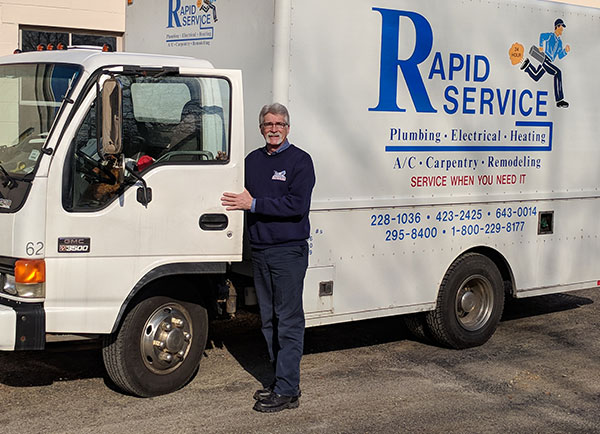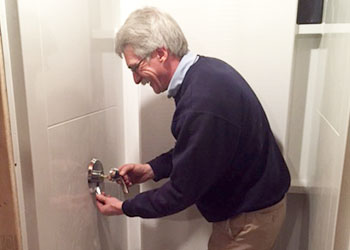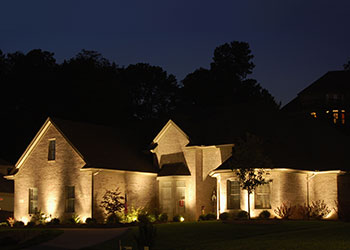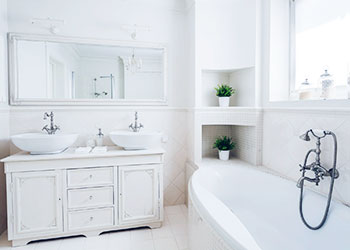What causes low water pressure?
There are few things that can cause low water pressure. Check all the faucets to see if it's ALL of them or just one faucet that has pressure issues. If it's just one faucet, the first thing that you should to check is your faucet aerator. It's the screen that covers the hole where the water comes out. Is there mineral buildup on your showerhead? Is there food or hard water deposits in your kitchen faucet? If the answer is "yes," try cleaning out the faucet before calling a plumber. An easy way to clean buildup on your showerhead is to tie a bag filled with lukewarm water and vinegar to it. Let it soak for a bit. The deposits should come right off with light scrubbing. Bonus: no harsh chemical smells or fumes! If buildup wasn't causing low water pressure, you may have a leak somewhere. A leak could be hard to find if it's inside your walls. If you are connected to city water, a spike in your water bill is a telltale sign of an undetected water leak. If you're on a well system, check your home for any signs of water damage. This includes musty smells and damp areas of walls or ceilings.
If buildup wasn't causing low water pressure, you may have a leak somewhere. A leak could be hard to find if it's inside your walls. If you are connected to city water, a spike in your water bill is a telltale sign of an undetected water leak. If you're on a well system, check your home for any signs of water damage. This includes musty smells and damp areas of walls or ceilings.
If a leak has been ruled out, you may still have an issue with buildup. However, the buildup may be within the pipes of your home's plumbing system. Hard water minerals can build up over time and cause low water pressure. A camera drain inspection may be an option to find out where exactly the blockage is.
When you should call a plumber
The number one rule of DIY is to know when you're in over your head. Water damage is THE most expensive and extensive home repair. If you've troubleshooted and tried everything but still have low water pressure issues, it's time to call a pro. A professional plumber will be able to diagnosis the cause of the low water pressure and provide solutions. Once a service call is scheduled with one of our technicians, you'll be back to enjoying your showers in no time!























